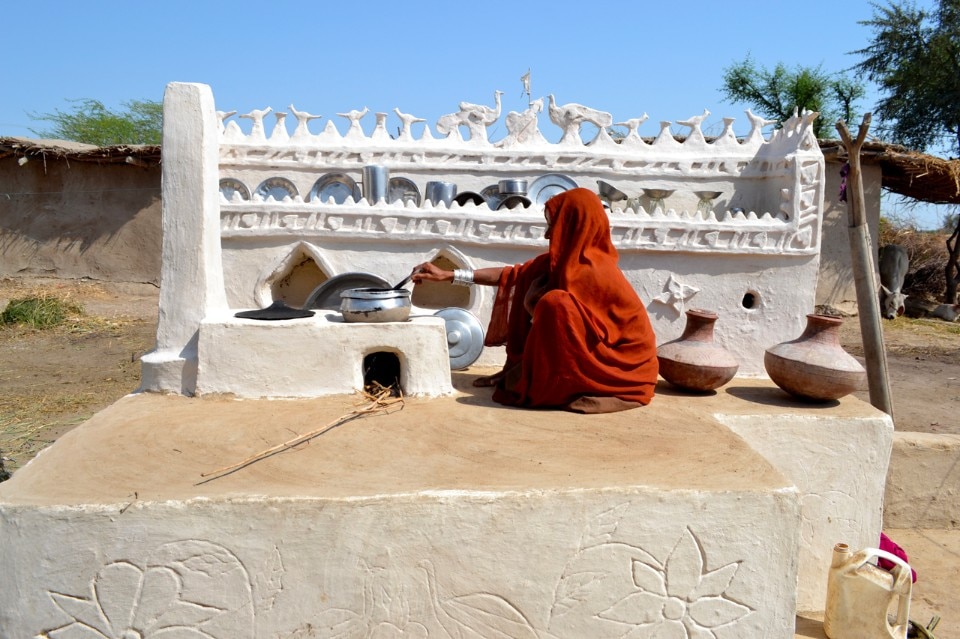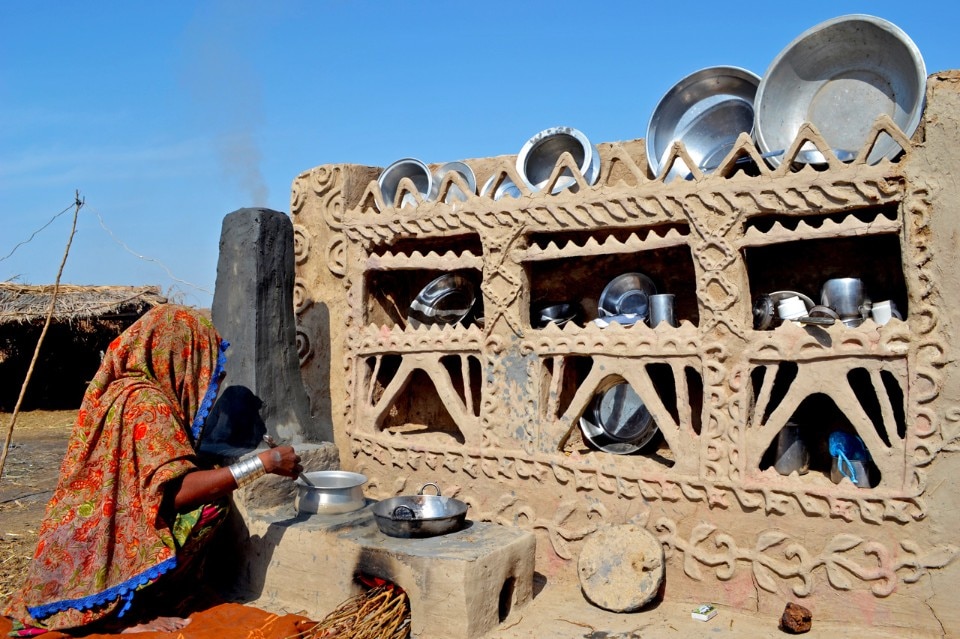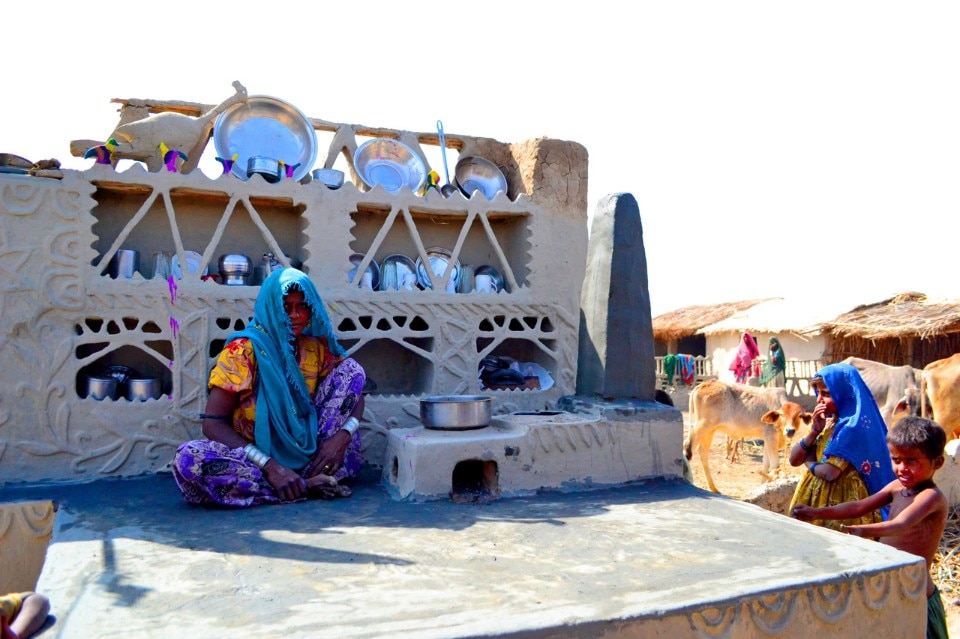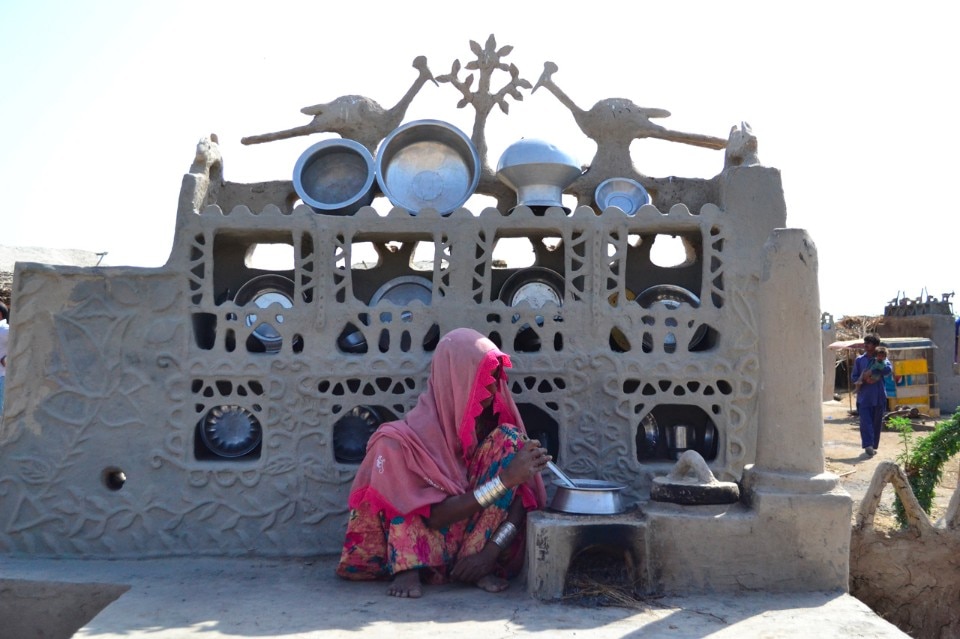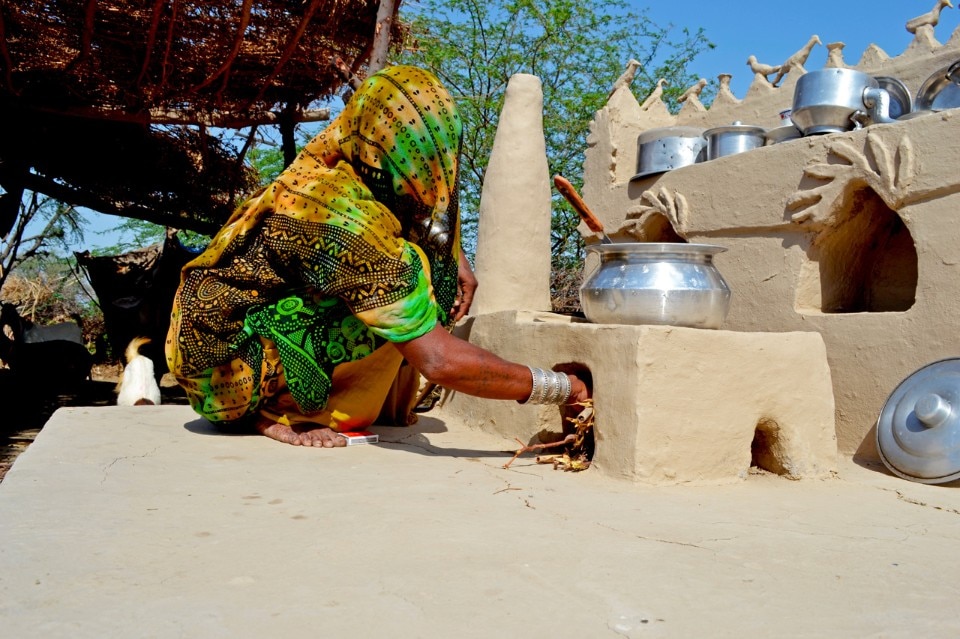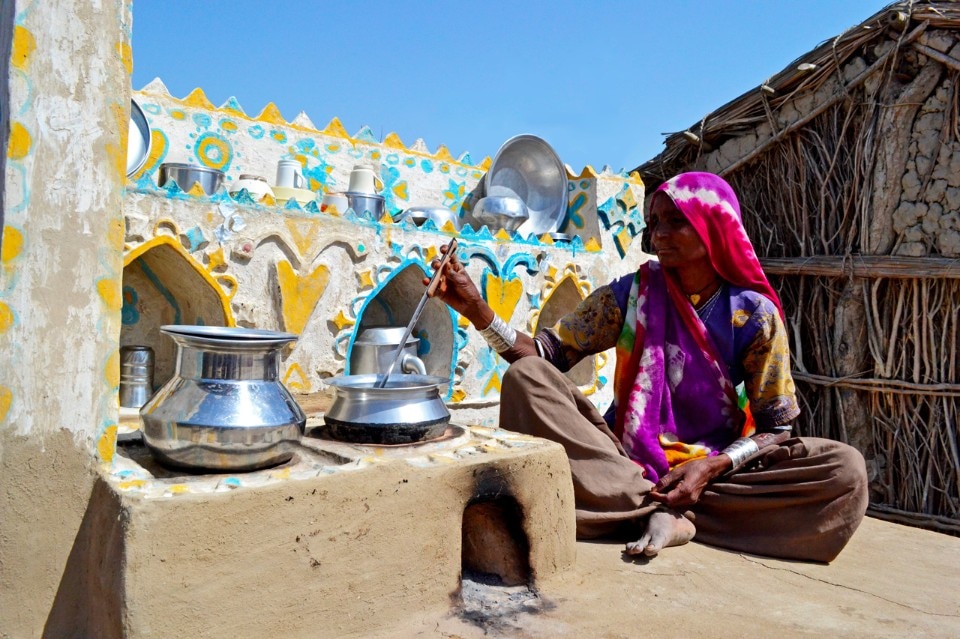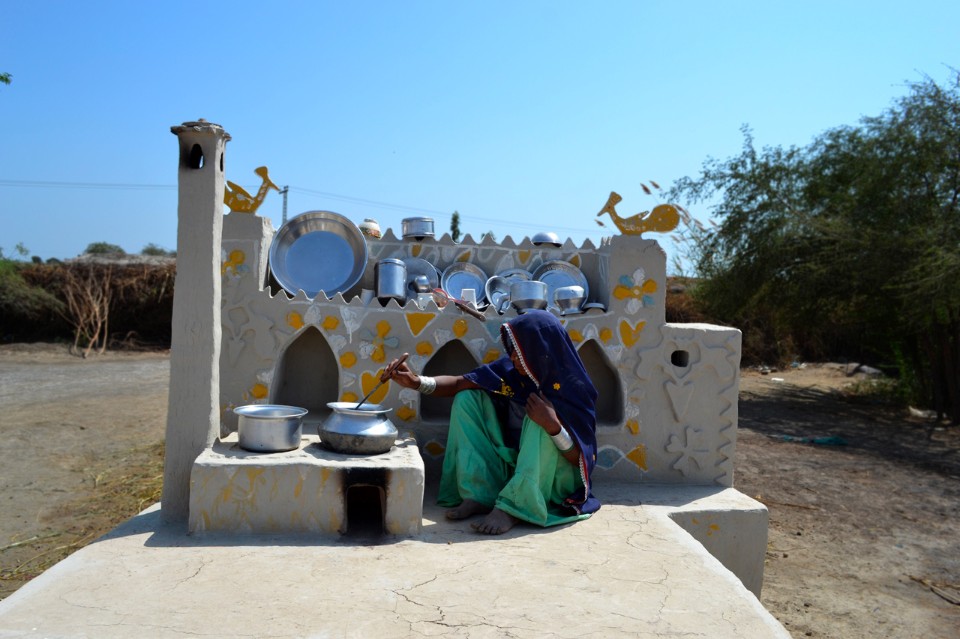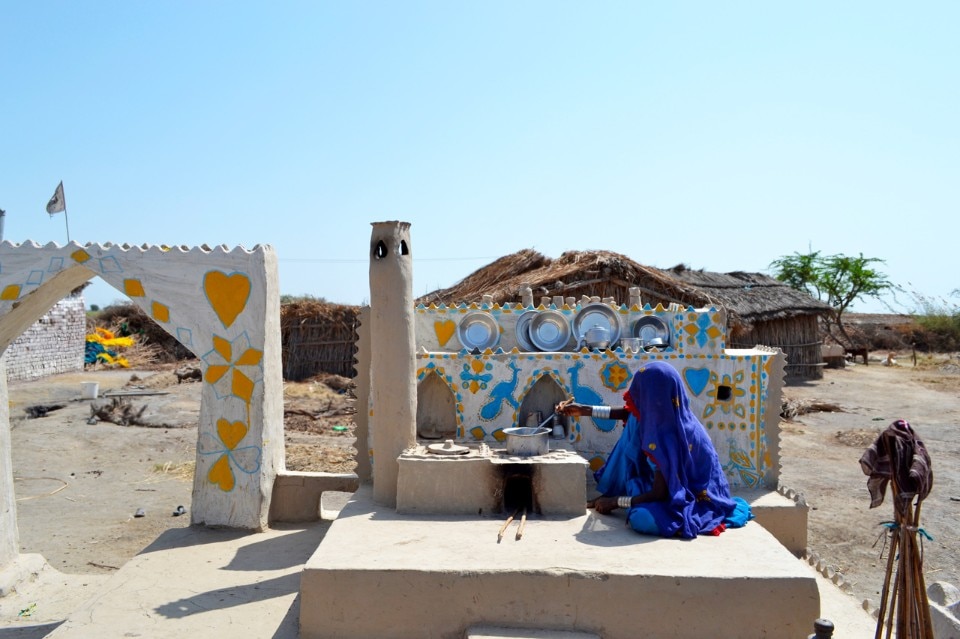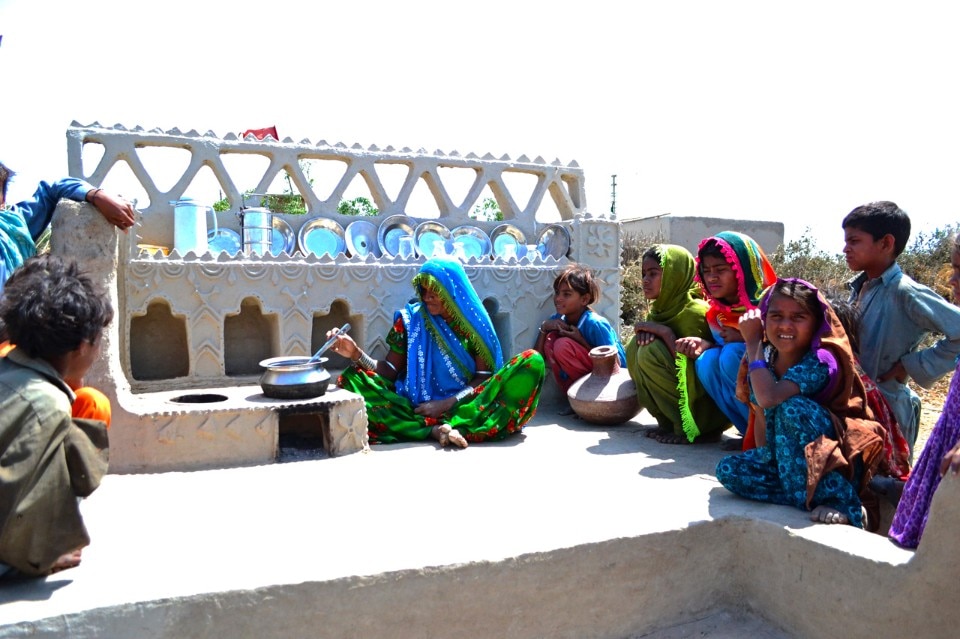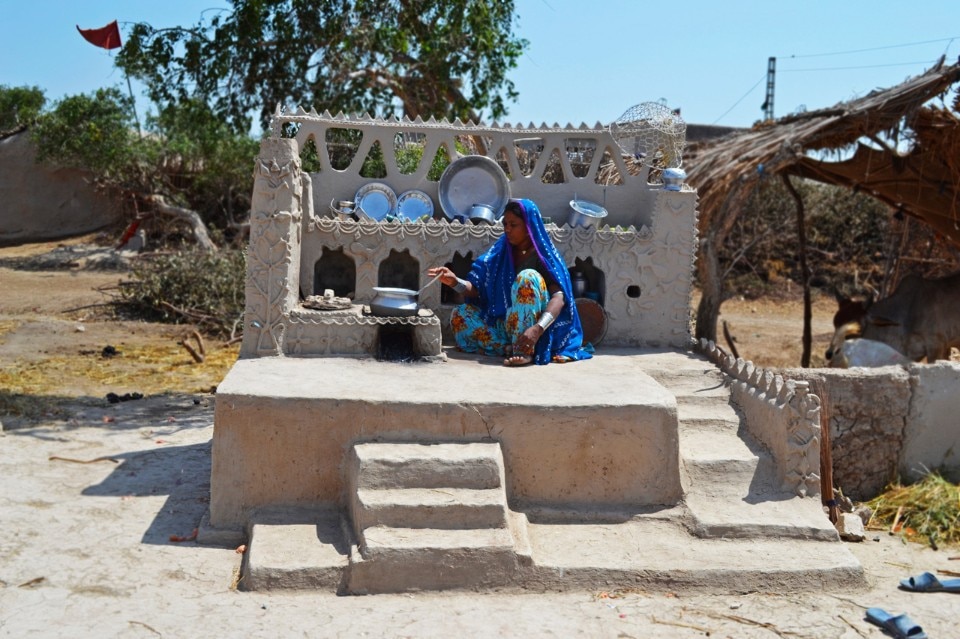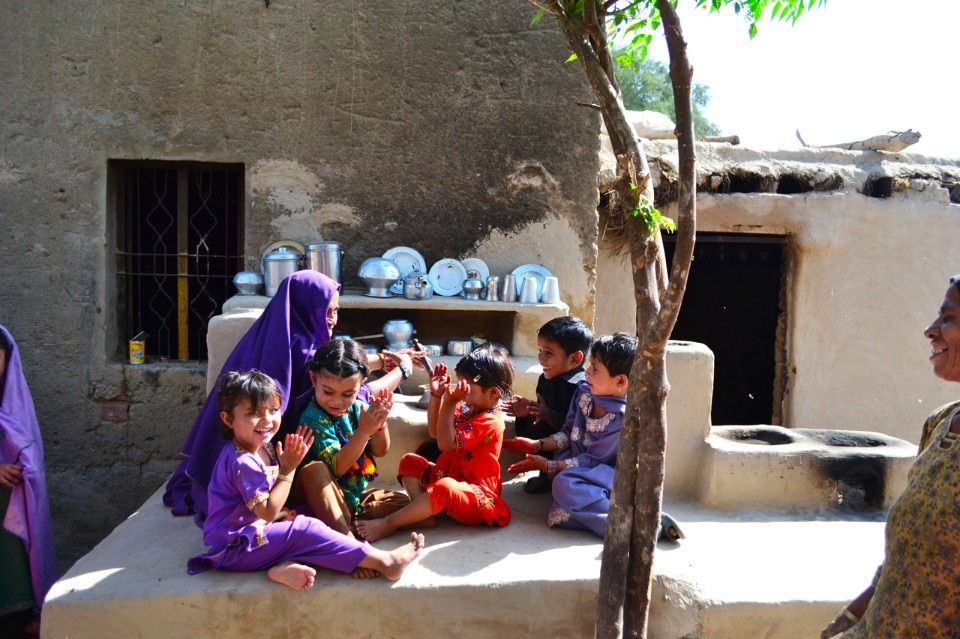In 2000, she closed her studio and has devoted all her time to the non-profit organisation she founded together with her husband, the Heritage Foundation Pakistan, which is also engaged in safeguarding architectural heritage. She has received numerous awards for her work with the foundation; the latest, in 2016, was the Fukuoka Prize for Arts & Culture in Japan.
Since 2010 she has built over 36,000 houses for flood and earthquake evacuees in her country. Her work is based on salvaging traditional techniques, subject to control through the latest structural verification systems before being built. Making homes as well as stoves, on which she has written for DomusWeb, is, as a rule, entrusted to those who will later use them and who have been trained for the task.
Yasmeen Lari firmly believes that architecture can be a tool of social transformation, and the fact that she believes in this makes it a reality.
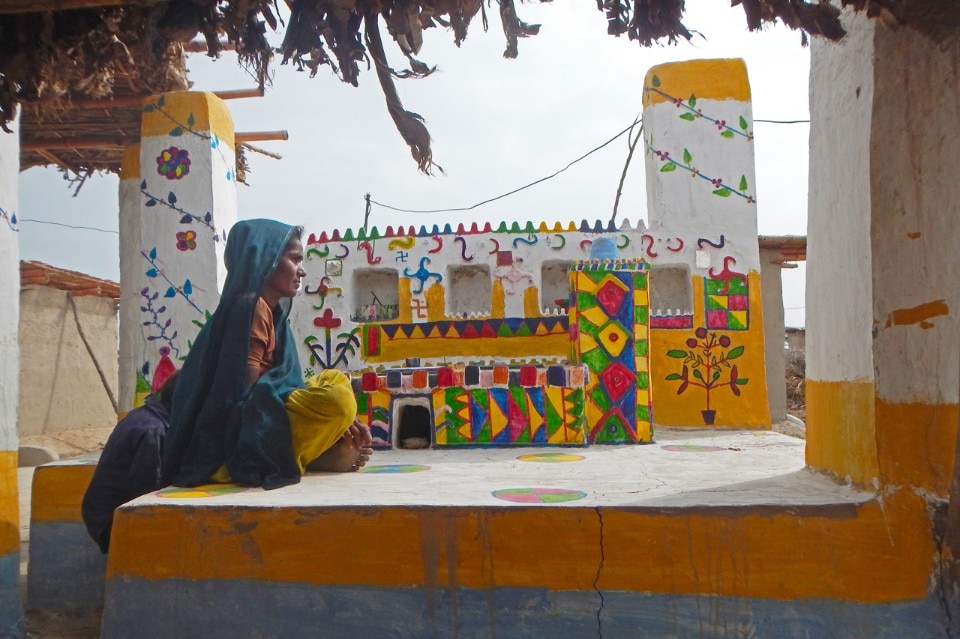
“Kareema is a beggar woman who lives with her family of mendicants in the shadow of the World Heritage necropolis Makli, Thatta. All her life she has used the 3-brick floor mounted smoke emitting stove, mixing dust and ground pollution with the food that she cooks. Come rain or floods, the stove gets washed away, leaving her with no possibility of cooked food for her family even if some philanthropists provide bags of rice or flour.
Her life has transformed ever since she has received training in building the zero carbon, smokeless, fuel efficient Pakistan Chulah.
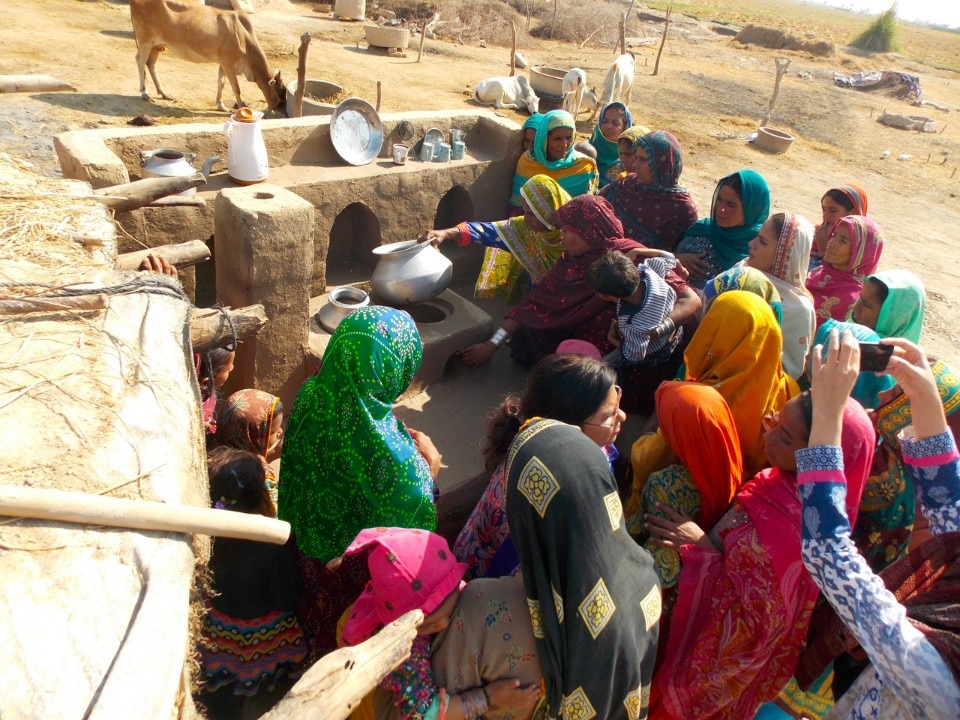
The Pakistan Chulah addresses the plight of women in rural areas of the Third World. Since it is mostly women who cook for their families, they are the worst sufferers. The eye and respiratory diseases they acquire largely remain unattended throughout their lives. The food cooked on floor-mounted single-stoves leads to unhygienic food and is a major cause of diarrhea, particularly among infants and children.
The Pakistan Chulah provides a clean dining space for the family on a raised earthen platform. Fuelled by agricultural waste, twigs or sawdust bricks, it prevents women from spending excessive time in the search for fuel. It also forestalls the use of biomass for cooking. As we know 2.4 billion people rely on biomass for cooking and heating, leading to large-scale environmental degradation.
The Pakistan Chulah is mounted on a raised lime-stabilized earthen platform. It is built to be DRR (disaster risk reduction)-compliant, being unaffected by rain, floodwaters or earthquakes. The techniques in earth construction are drawn from vernacular traditions of Pakistan. Rural women are particularly proficient in building earthen structures, which are then covered with a render, lovingly and carefully applied to beautify the core of the earth wall. The plaster is usually mixed with straw and cow dung, providing it with elasticity and smoothness. By adding lime recommended by us, the structures become strong and are no longer prone to usual disintegration of earth surfaces. The addition of lime is derived from Pakistan’s own ancient heritage going back to the 13th century, as well as the pyramids of Egypt and the aqueducts of Rome.
The placement of the double-stove on earthen platforms, a hygienic environment for cooking is achieved. Animal droppings and dirt that are commonly seen in the floor mounted open-fire stoves, no longer contaminate the food while it is being cooked.
An air regulation pipe allows the transfer of heat from the combustion chamber to the secondary chamber, thus making it possible to cook on both the stoves even while fuel is used only in one stove. The chimney that is incorporated in the design emits smoke only when the fire is lit and that too at a higher level, thus avoiding the diseases commonly associated with the traditional makeshift stoves.
Other features include an earthen storage wall in the rear of the stove where cooking utensils can be stored or displayed. A small platform for hand washing is also available and, in the absence of running water, it incorporates a can of water at a higher level to facilitate hand washing.
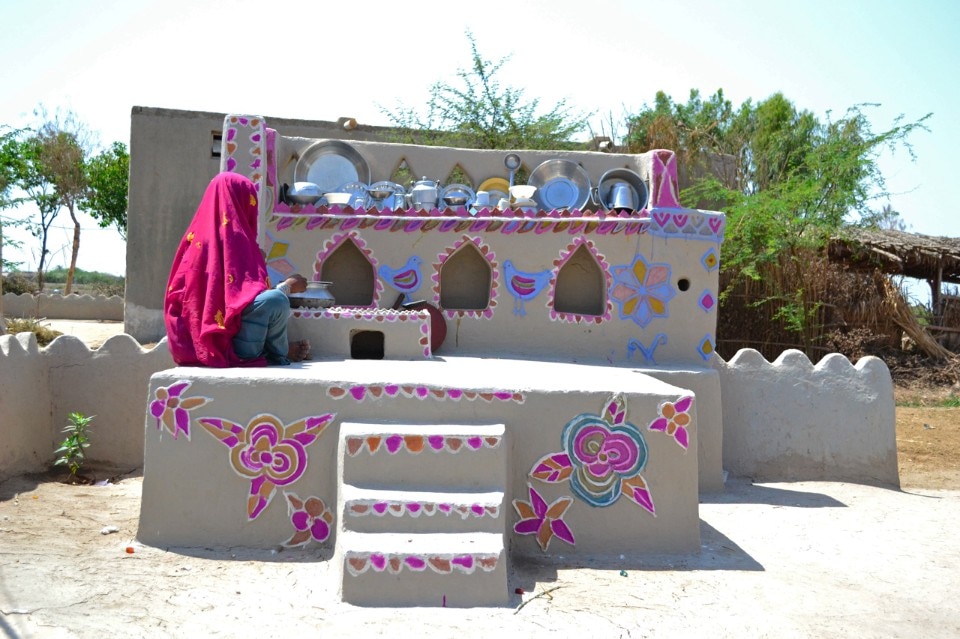
When I designed the Pakistan Chulah, I was considering only limited advantages: health, DRR-compliance, hygiene, ease of cooking and environmental benefits. However, there are some splendid outcomes of the venture. It has become a life-transforming element for women, raising their status to a height that was unimaginable prior to this intervention.
Women, who would be normally crouching on the floor, showing their helplessness and apathetic state, have acquired an elevated status. The earthen platforms have literally become synonymous with a throne, allowing them to sit with an erect posture. They have turned into real providers of food for the family who now sit in front of them as if supplicants.
The raised earth platform has become a dining room, where for the first time in their lives, the family members socialize with each other, and where grandmothers can now indulge in their story telling. In addition to the family space, it has also become a community social space, where women from neighbouring houses can sit or stand around, interacting with each other.
In the absence of any working space available to women, the earth dais has become their work platform. When they are not cooking they are using it to carry out their craft activity: embroidering, stitching, even practicing the ancient craft of glazed-tile making.
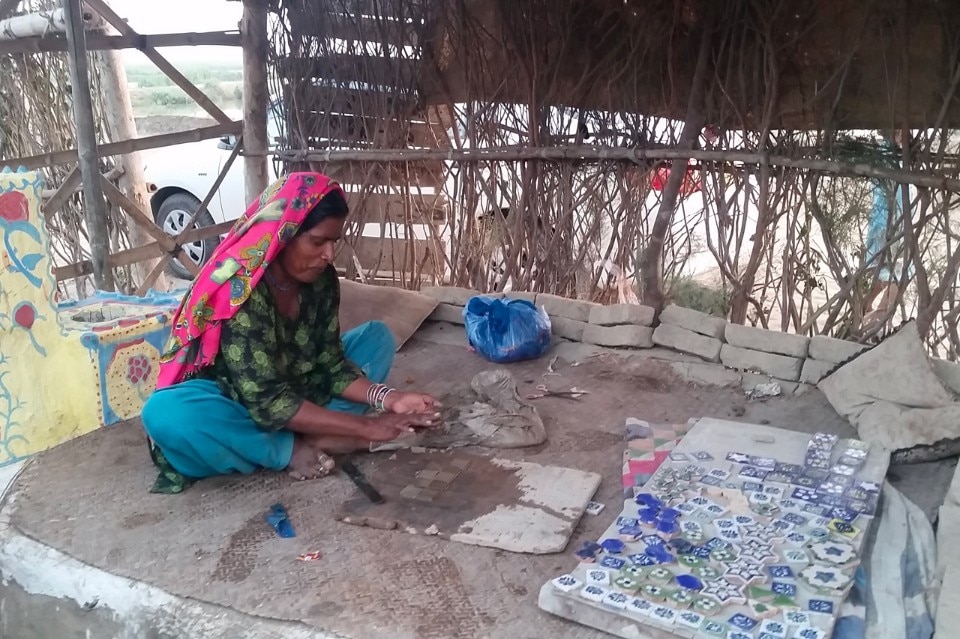
And above all, women have been able to express their creativity and innovation. They have vindicated my belief in forcefully pursuing social architecture where architectural design is but a canvas inviting the unleashing of the artistic impulse of the user.
The creative expression of women who built their cook-stoves has been outstanding. Keeping the original elements of the stove design, they have adjusted these to their own requirements. They have used their imagination to embellish their stoves with folk motifs that have been taught to them by their mothers and their mothers before them. They have brought the excitement of vernacular design and traditions to personalize that are usually seen as mundane earth cook-stoves. Thus, they have customized each one as a designer stove, showing the pride and ownership of the initiator.
Due to the ingenuity of the rural women of the country, Pakistan Chulah is not a cook-stove; it is akin to a work of art!”


